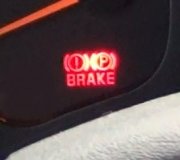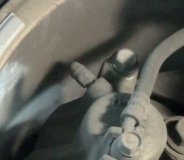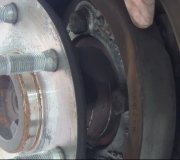2004 Mazda MPV 6 cyl Automatic 58000 miles
This problem happened a few times last winter and is starting to happen again now that cold and snow have set in. While driving on the freeway (after not needing to brake for several minutes or more), when I apply the brakes the brake pedal is hard and doesn't go down at all, and the brakes don't work. It did this a couple times after being parked all day, too. It feels as though the brake pads or rotor have frozen and won't stop the car. I have pumped the brakes a lot and after 5 to 15 seconds the pedal & brakes work fine again. It is scary and dangerous to not be able to brake at times, though. It seems to only happen when it gets very cold (below 10 F, I'm guessing). The brakes do not make the vibration and noise that happens when the anti-lock mechanism goes on, at these times. They simply do not stop the car. I don't know if the problem is the brake pedal or the brakes themselves. It can happen when the car is fully warmed up and has been driving for awhile, as well as after being parked for hours in the cold. I took it to my regular mechanic last winter and they said they didn't see anything wrong. Now that it's happening again this winter I'm not sure who to take it to.
Saturday, January 2nd, 2010 AT 12:33 PM


